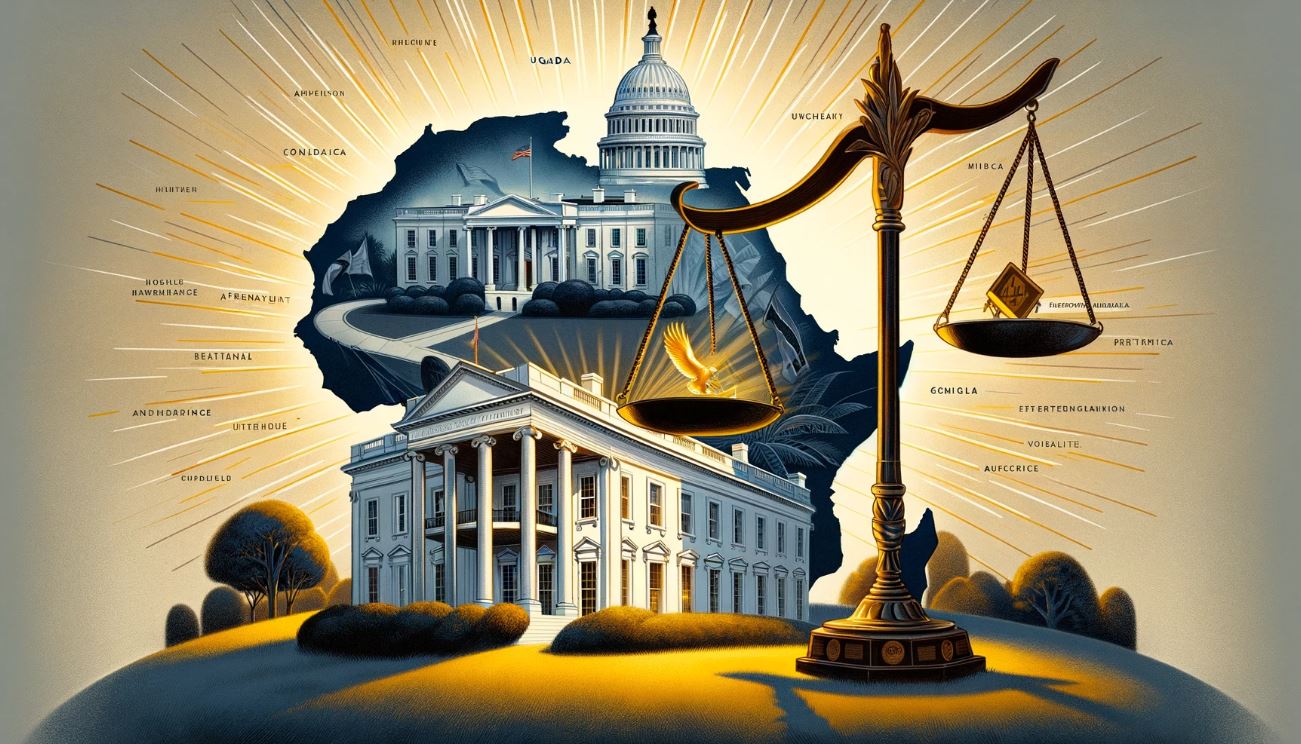White House defends its hard stance against Uganda’s Anti-Homosexuality Act
Biden-Harris Administration’s Firm Stance Against Uganda’s Anti-Homosexuality Act
In the midst of legal challenges against Uganda’s divisive Anti-Homosexuality Act, the Biden-Harris administration is resolutely committed to holding the African nation answerable. This steadfast stance is maintained even as the U.S. strives to rejuvenate its connections across the African continent, following a prolonged period of limited engagement.
Controversy Surrounding Uganda’s Anti-Homosexuality Legislation
Uganda’s contentious legislation imposes severe penalties for homosexual acts, including the death penalty in cases termed as “aggravated homosexuality.” This law has drawn extensive criticism from both the U.S. and European nations since its enactment by President Yoweri Museveni in May.
Reporting Obligations and Human Rights Concerns Under Uganda’s Law
Under this law, the public, including healthcare professionals, is obligated to report individuals suspected of participating in same-sex activities. Landlords are even compelled to evict tenants who are either identified as or suspected of being LGBTQ, risking imprisonment if they fail to comply. “The president is always concerned [about] any type of human rights violation, any type of legislation or actions that’s going to certainly go after [underrepresented] communities,” stated White House press secretary Karine Jean-Pierre in a briefing last week.
U.S. Measures to Hold Uganda Accountable for the Anti-Homosexuality Law
In response to the law’s implementation, the Biden-Harris administration has initiated various measures to hold Uganda accountable. These include imposing visa restrictions on Ugandan officials, reducing government-to-government funding initiatives via the Department of Defense and the President’s Emergency Plan for AIDS Relief (PEPFAR), and revoking Uganda’s eligibility for the African Growth and Opportunity Act, effective from Jan. 1, 2024.
Concerns Over the Impact of AGOA Funding Restrictions on Uganda
While some view the Anti-Homosexuality Act as a blatant violation of human and civil rights, concerns have been raised regarding the potential impact of AGOA funding restrictions on Uganda’s citizens and business community.
Potential Consequences of Withdrawal from AGOA for Ugandan Entrepreneurs
Dorothy M. Davis, a seasoned expert in African diplomacy, previously expressed to theGrio, “AGOA is fundamentally aimed at benefiting the people, particularly entrepreneurs. Its withdrawal could be detrimental to these business owners who are striving to bring their products to international markets.”
U.S. Commitment to Human and Civil Rights in International Engagements
John Kirby, the White House National Security Council’s strategic coordinator, emphasized in an interview that the administration’s intent is not to disadvantage ordinary Ugandans. However, he stressed the necessity for the U.S. to ensure that its international engagements reflect President Joe Biden’s commitment to human and civil rights.
Aligning U.S. Foreign Policy with Core Principles and Values
Kirby underscored, “Our investments and expenditures must echo our core foreign policy principles and values, including those we advocate globally, like in Africa.” He added, “It’s crucial to demonstrate tangible accountability, proving our commitment to protecting the rights of all citizens.”
AGOA’s Role in Trade and the U.S. Policy on Military Aid
Kirby also highlighted the significant commercial, research, and scientific value of AGOA, a program designed to boost trade in sub-Saharan Africa. He compared the restriction of AGOA access to U.S. policies on military training and security assistance, stating, “Receiving military aid implies an obligation.”














+ There are no comments
Add yours